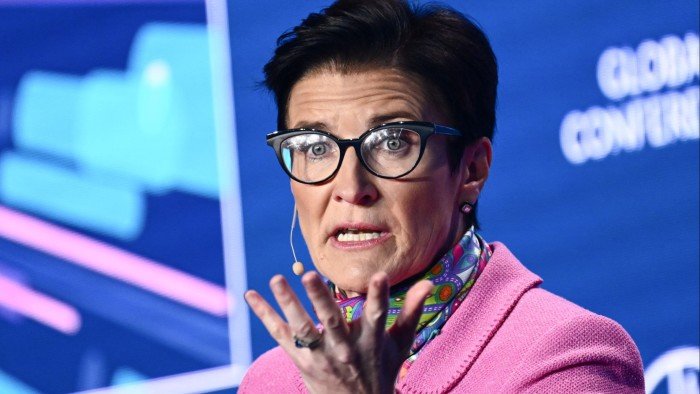Stay informed with free updates
Simply sign up to the US banks myFT Digest — delivered directly to your inbox.
Citigroup is scaling back its policies around diversity, the latest US company to retreat from targets to promote a more inclusive workforce.
Donald Trump’s return to the White House has intensified a backlash to diversity, equity and inclusion targets, leading companies to abandon goals they had put in place only a few years ago.
In a memo to staff on Thursday, chief executive Jane Fraser wrote that the bank would no longer have aspirational representation goals unless required by local law, and nor would it require “diverse slates of candidates and diverse panels of interviewers”.
Citi had set diversity goals in 2022 for assistant vice-presidents up to managing directors to be at least 43.5 per cent women, 11.5 per cent Black and 16 per cent Latino.
As part of the changes, Citi is also changing the name of its “Diversity, Equity and Inclusion and Talent Management” team to “Talent Management and Engagement”.
Fraser said the changes followed “developments related to diversity initiatives across all US institutions”.
“It is important to note that we’re living in an environment where things are changing quickly,” she wrote. “We will determine if additional updates are needed to other areas in the coming weeks.”
The change from Citi comes just two months on from the bank’s global head of talent, Erika Irish Brown, telling People Matters, an HR news outlet, that DEI was “a business imperative” and “part of our DNA”.
Citi, which has about 230,000 employees worldwide, joins a list of corporate giants such as Accenture and Walt Disney in scaling back diversity initiatives following Trump’s election victory in November.
Wall Street rival Goldman Sachs also abandoned a pledge to only take public companies with a certain number of diverse board members, though the bank has kept in place its internal diversity goals.
DEI programmes have existed in corporate America for decades but the initiative gained momentum in 2020 following the murder of George Floyd.
Critics have argued that these programmes prioritised demographic factors over merit in awarding jobs.

